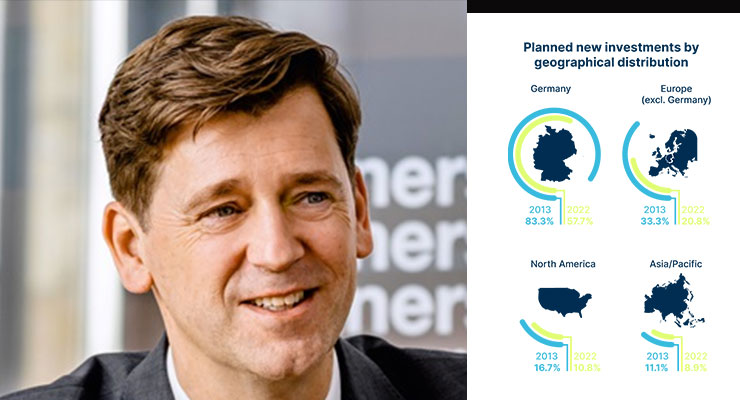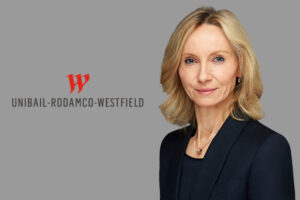According to the annual Universal Investment real estate survey, which has now been conducted for the tenth time, German institutional portfolios are increasingly being diversified in terms of their usage types and geographical target markets. While the domestic market in Germany and the other countries of Europe continue to account for the bulk of the invested assets, over the course of the past decade North America and Asia have increasingly gained in significance. With a view to usage types the one-off effects of the coronavirus pandemic declined noticeably in 2022, with demand for logistics and trade properties profiting, while demand in the residential segment has normalised. The clear hike in interest rates and the rising rates of inflation are also having a significant impact.
Thus, for instance, for the first time in many years investors are now clearly focusing on the recurring cash flow return on real estate investments. Likewise, the expected returns on investment are again increasing for the first time in years, and at 3.85% have reached their highest level since 2018. In this respect the vast majority of investors – approx. 95% – regard the real estate asset class as effective protection against inflation. Accordingly, nine out of ten investors intend to at least maintain or increase their allocation in real estate.
“As the coronavirus pandemic ebbs the sustainable impact of structural megatrends is again having a positive influence on the institutional real estate market. Internationalisation and differentiation by usage types, and especially in what were previously niche markets, are moving forward. Here investors are increasingly endeavouring to profit from developments such as digitalisation, urbanisation and demographic change. This once again underlines the importance of a long-term investment horizon in the strategic management of real estate portfolios,” comments Axel Vespermann, Head of Real Estate at Universal Investment.
North America and Asia gain in significance
In 2022 the portfolios of existing properties of the surveyed institutional investors were distributed as follows: 66.9% in Germany, 17.4% in other European countries, 7.4% in North America, and 4.2% in Asia. The remaining 4.1% was accounted for by miscellaneous markets in Oceania and threshold countries such as Brazil. Thus there has been a decrease in the significance of the German (-0.9 percentage points) and the European market (-4.7 points) in a comparison with the previous year, while North America (+0.6 points) and Asia (+0.9 points) gained in popularity. Compared with 2014 this development is even more striking: since then there has been a decline in the German (-5.1 points) and European (-6.9 points) shares, whereas North America (+5.2 points) and Asia (+3.4 points) increased appreciably.
A similar trend may be observed with future new investments. Investors are planning on an average allocation of 57.7% in Germany, 20.8% in Europe, 10.8% in North America and 8.9% in Asia.
Retail now just as popular as in 2017
After the 2021 survey was conducted in what was an extraordinary year in many senses, 2022 revealed some major changes in the popularity of various real estate usage types. With regard to future investment plans, the office segment once again took first place for the first time since 2019 with 34.7% (+1.2 points over the previous year). The reason for this development was above all normalisation of the popularity of the residential segment compared to the record figure seen in 2021 (41.4%), with this segment taking second place this year (24.4%). In terms of decreasing significance came the usage types logistics (17.5%), retail (13.7%), other (9.2%) and hotels (0.8%). In particular retail (+8.5%) and logistics (+8.3%) saw strong growth, whereby retail properties experienced levels of demand last seen in 2017 and there was greater demand for logistics than ever before.
Learn more about the key findings of Universal Investment in our November/December print issue.







